
The Global Marketing Show, hosted by Wendy Pease at Rapport International, helps growth-minded marketers expand into international markets and boost multilingual lead generation and revenue. Each episode features experts from industries like medical devices, industrial manufacturing, consumer brands, government, and education sharing real-world lessons on how to go global the right way. Discover actionable strategies for translation, localization, transcreation, and cultural adaptation, plus insights on the technologies, workflows, and quality standards that drive global marketing success. Whether you manage global campaigns, oversee multilingual content, or lead international sales, this podcast is your guide to building a brand that connects across languages and cultures.
The Global Marketing Show, hosted by Wendy Pease at Rapport International, helps growth-minded marketers expand into international markets and boost multilingual lead generation and revenue. Each episode features experts from industries like medical devices, industrial manufacturing, consumer brands, government, and education sharing real-world lessons on how to go global the right way. Discover actionable strategies for translation, localization, transcreation, and cultural adaptation, plus insights on the technologies, workflows, and quality standards that drive global marketing success. Whether you manage global campaigns, oversee multilingual content, or lead international sales, this podcast is your guide to building a brand that connects across languages and cultures.
Episodes
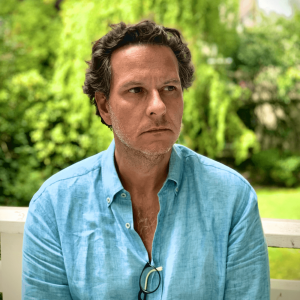
Wednesday Jan 10, 2024
CGI Simplifies Localization in Car Advertising - Show #123
Wednesday Jan 10, 2024
Wednesday Jan 10, 2024
Faruk Heplevent is founder and CEO of The Scope, a company specializing in computer-generated imaging (CGI) for the automotive industry. He is a pioneer in the industry, leading the charge for a more sustainable process for new car reveals; his client list of brand-name manufacturers throughout the world is proof of how The Scope’s approach and technology have inspired change.
The process for planning and executing new car reveals has historically been laborious, costly, and time-consuming, requiring at least six months simply for planning. Since the 90s, when photographers relied on “wet” film rather than “dry,” digital film, every catalog and commercial for every new car launch campaign required what Faruk calls the “cost and time of ‘real life.’”
Locations, permits, staff, meetings, logistics, weather/vegetation changes, sustainability issues due to excessive travel and shipping requirements all came into play in the process, starting with:
- At least 6 months for planning
- Security teams to maintain secrecy
- Logistics around wrapping the car, shipping it out, and receiving it on location, without it being seen (when a new car was on location, it was referred to as “code red.”)
- Flying a crew of 5-6 people to the location – typically either Los Angeles, South Africa, or Spain
- Hiring a local support crew
And last, but certainly not least, the crew would simply hope for – or wait for – good weather. Altogether a complex, expensive, and time-consuming process, with no privacy guarantee.
The traditional shoot locations were versatile, reliable insofar as terrain and backdrop options, with agreeable weather. Localization and globalization requirements, however, meant the output – the “film” – needed to service launches from countries throughout the world, with cultural understanding. In other words, the images had to stay on-brand while accounting for cultural leanings in Asia, which are markedly different from those in Europe or the US, and be conscious of even regional differences.
Hollywood was the first to adopt CGI technology, for special effects in movies and television; for the latter, it meant using the same sound stage for multiple shows, simply by altering the backdrop. The automotive industry was not far behind and Faruk helped lead the charge.
He spent about 8 years perfecting CGI technology for vehicle images, ones matching the quality of a live, on-site shoot. The advancement meant no more worries around weather or location; and, once the “digital twin” – a 3D representation matching visual fidelity and quality of the car – is rendered, it takes just one week to create a final, working prototype image for the decisionmaker’s review.
The result is “possibly even better” than an actual photograph, says Faruk. You can incorporate “creative choices” and the editing process, previously constrained by weather and other factors, is now relatively instantaneous so even “micro-edits” are incorporated.
The Scope is based in Germany and Faruk’s multilingual, international background means he is well aware of the cultural nuances so important to car advertising. Any global launch first addresses a country’s cultural sensitivities; thereafter, the images and messaging are customized to specific markets.
For example, some generalizations remain consistent across continents:
- Europe wants “authentic, not artificial” imagery. What’s accurate and true? Look for “rugged, tangible backdrops” and details.
- Asian countries prefer pristine, fresh air, clean, “aspirational,” high-end photos, in direct contrast to current climate issues such as smog in Beijing.
- The US looks for authenticity mixed with idealism. The culture differs enough from English-speaking European countries that it requires attention. What’s accurate and true, but with a hint at perfection.
“Authentic – that’s the big word these days,” says Faruk. “It’s not supposed to look artificial. Because everyone’s afraid that CGI is going to look artificial because it is artificial by nature.”
The technology easily adds authenticity, toggling among a library of backdrops and details (like colors, flags, currency, people) that can be instantly implemented (or dismissed). Localization and globalization efforts can be even more tailored to a specific audience or geographic region, as a result – white cars in the southern US, more black cars in the north, and no desert or Nordic forest backdrops in the UK, for example.
Throughout, despite superior technologies and our increasing cultural awareness, Faruk is emphatic about having local people review content for cultural propriety, underscoring the never-ending complexity of translation and cultural adaptation.
Links:
Website: www.TheScope.studio
LinkedIn: https://www.linkedin.com/in/farukheplevent/
Connect with Wendy - https://www.linkedin.com/in/wendypease/
Music: Fiddle-De-Dee by Shane Ivers - https://www.silvermansound.com
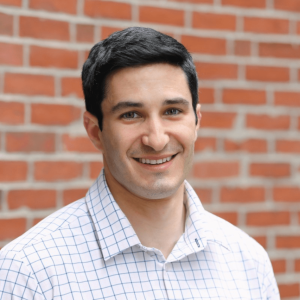
Wednesday Dec 06, 2023
Picking International Partners - Show #122
Wednesday Dec 06, 2023
Wednesday Dec 06, 2023
Josh Medow is CEO of Mercury, a healthcare and life sciences shipping company. After years as a leader in the Army Infantry and living abroad, he knew that he had an interest in running a global company. In this episode, he tells the compelling story of how he searched for and found the right company to buy and build.
At first glance, Mercury met Josh’s requirements – global reach, a good culture, clear opportunity for growth, and a trustworthy reputation.
The company specializes in logistics for medical device, diagnostic kit, biotech, life science research, and pharmaceutical companies, offering every shipping option in every geographic location. They are specialists in customs, packaging, import permits, harmonization codes, and dry ice, and positions itself as a dependable partner.
Josh recognizes that many customer recipients have the potential to become Mercury clients, so Mercury is set up to handle shipments around the world, via an active partner network. The company finds potential shipping partners by attending industry trade shows such as the World Cargo Alliance, and also regularly fields inquiries from interested companies, vetting each one by learning about their experience and capabilities, then testing and tracking initial shipments. Companies are thereafter audited periodically to be sure they’re performing to Mercury’s high standards.
Tune in to find out more about the world according to Josh, which includes advice from his lessons learned:
- His biggest challenge – running operations globally around the clock.
- His biggest piece of advice – stay curious.
- His biggest success – hiring a diverse team.
- His next steps – to expand Mercury’s marketing into other countries and languages.
Links:
Website: www.shipmercury.com
LinkedIn: https://www.linkedin.com/in/josh-medow/
Connect with Wendy - https://www.linkedin.com/in/wendypease/
Music: Fiddle-De-Dee by Shane Ivers - https://www.silvermansound.com
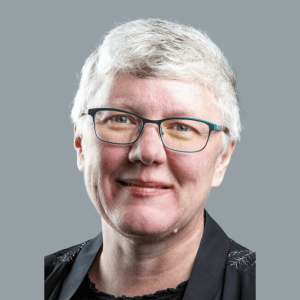
Wednesday Nov 15, 2023
AI Translation Expert Tells All - Show #121
Wednesday Nov 15, 2023
Wednesday Nov 15, 2023
Have you ever heard the saying: “Not my circus, not my monkeys”? I use it all the time, yet never realized that it is translated from Polish.
Dr. Lynne Bowker, professor of translation technologies and information systems at the University of Ottawa, recently returned from Poland, where she was collaboratively researching ways to make academia more language inclusive. Scholars from around the world are encouraged to publish and attend conferences in English, yet fewer than 10% of the researchers in the world are Anglophones. In fact, for many it’s their second, third, or even fourth language.
Imagine being a world expert in a subject but unable to share your findings and learn from others unless you speak English. With pressing global issues such as food insecurity, global warming, refugees, war, and more, Dr. Bowker set out to find ways in which AI translation or Machine Translation (MT) could help.
Dr. Bowker specializes in language technology. In her recent book, “Demystifying Translation,” she explains why AI and MT translation are today not yet able to solve the issues related to cross-lingual communication – there are limits to what the technology can do and it’s not trustworthy.
The biggest challenges facing authors in academia are the ability to:
- Read others’ writings.
- Write in English.
Leveraging AI/MT varies for each of these situations. To tackle the first challenge, the researcher can use automated translation to get the “gist” of what an article says and, with their specialized knowledge, do a pretty good job of figuring out its meaning.
In the second scenario, non-English speaking researchers typically don’t possess English writing skills strong enough to clearly write their findings. This means that they would need to pay someone to write it or have a highly skilled translator edit their original draft. To simplify access to research, the academic community must get to the point of accepting publications in a researcher’s native language, with readers relying on AI/MT for gist translations. Lacking this option, many researchers will continue to opt out of publishing or presenting at conferences to share important research.
At the same time, Dr. Bowker stresses the importance of recognizing that language technology is not perfect and ultimately requires nuanced discussion and experienced judgment regarding where and how to use it. It’s not merely a discussion as to whether AI/MT will replace humans in translation.
Ironically, automated machine technology is old tech. In the 1940s during World War 2, experts developed tools to decipher what the enemy was saying – spying tools, essentially. The technology relied on dictionaries and linguistic rules for grammar to translate, and had particular trouble with synonyms (two meanings for one word) and polysemies (words with more than one meaning – for example “pen,” as in a writing pen or play pen). Ultimately, the technology was used only by professional translators because it was not good enough to release.
Throughout the ‘80s and ‘90s, the technology in general improved – it became faster, smaller, and required less storage. Programmers started thinking of new ways to process language – by using data-driven approaches instead of linguistic rules. Translation quality improved in general but still fell far short of high quality.
Current advances have changed from data-driven analysis to pattern identification, whereby machine language learning develops a memory by ingesting vast amounts of multilingual text. Without the large amounts of data, the technology is useless.
Dr. Bowker recalls a time when Canadian weather forecasters struggled to hire English-French translators because the work was so repetitive – the words and format were always the same. After a few months, even new undergraduate translators quit from boredom. By leveraging AI/MT, the organization could save time, money, and effort.
Technology still struggles with:
- Languages that have less content – languages like Welsh and Danish have fewer speakers, thus less content is produced. It’s challenging enough to develop a machine learning (ML) model that can translate from English to Welsh, let alone from Welsh to Danish.
- Unusual topics – in research, topics are usually novel and don’t have a gathered history of translation. This challenges the technology to find appropriate translations.
- Hallucinations – one team set out to test whether AI could properly classify an animal as a huskie or a wolf. After training the model on hundreds of pictures, its responses were mostly accurate; however, upon further inspection the researchers figured out that the model had been trained to identify wolves by snowy backgrounds, versus huskies in backyards. Thus, the model looked at the wrong information. Training for proper identification of skin lesions produced the same outcome – the model identified cancerous lesions by looking for a ruler in the picture.
- Misogynism and racism – models learn and parrot back what it ingests and, simply put, the Internet provides lots of questionable content.
The bottom line, according to Dr. Bowker, is that while we are still far away from a world in which automated translation can replace human translation, the language industry will only benefit from educating people on proper and effective translation methods, in the meantime.
When translating your material, remember the iron triangle (aka project management triangle), which illustrates how the balance among three project constraints – scope, time, and budget – affects quality. Adjusting for any one constraint necessarily affects one or both of the other variables:
- Fast and cheap = lower quality
- Fast and quality = very expensive
- High quality = pricey and slow
Finally, we agree that the industry conversation will turn toward the increasing need for experts in global content strategy. Think about the content along your buyer’s (or stakeholder’s) journey – from first encounter to raving fan. A thoughtfully planned strategy alongside clearly defined processes and technologies will guarantee high-quality content for every audience, while saving your employees time and effort.
Links:
With a Creative Commons (CC BY-NC-SA) license: https://www.taylorfrancis.com/books/oa-mono/10.4324/9781003217718/de-mystifying-translation-lynne-bowker
LinkedIn: https://www.linkedin.com/in/lynne-bowker-0112996/?originalSubdomain=ca
Email: lbowker@uottawa.ca
Connect with Wendy - https://www.linkedin.com/in/wendypease/
Music: Fiddle-De-Dee by Shane Ivers - https://www.silvermansound.com
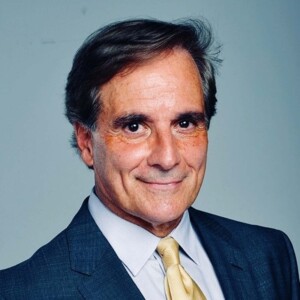
Wednesday Oct 25, 2023
Resources for Exporters – No Need to Go it Alone! - Show #120
Wednesday Oct 25, 2023
Wednesday Oct 25, 2023
Laurent Kahl is an International Export/Import Consultant at the University of Georgia (UGA) Small Business Development Center (SBDC). He brings years of experience as an export manager, export consultant, and international sales expert to this episode, delving into the abundant US state and federal resources available to anyone looking to conduct business across borders.
These free resources exist because the US imports much more than it exports, so the balance of trade is perpetually off balance; by supporting companies that export, the state and Federal government help to mitigate the imbalance for a healthier economy.
Once business owners realize that exporting companies perform better, it can be difficult to figure out where to start. Every state has an SBDC, under the jurisdiction of the Small Business Administration (SBA). In turn, SBDCs support US Export Assistance Centers (USEACs) that help companies:
- Access capital
- Develop and exchange new technologies
- Improve business planning, strategy, and operations
- Attain financial and human resource stability
- Initiate global marketing and sales, including translation and other language services
The agency focuses on areas required for small business growth and expansion, management improvement, increased productivity, and innovation. In addition, USEACs will often maintain an international office to better connect small businesses with in-country distributors, partners, and service providers.
Tune in to the full episode to access even more free resources to get you started on the path to international sales!
Links:
Email: lkahl@georgiaSBDC.org
Phone: +1-678-203-0522
Website:
https://www.georgiasbdc.org/staff-members/laurent-kahl/
LinkedIn: https://www.linkedin.com/in/laurentkahl/
Connect with Wendy - https://www.linkedin.com/in/wendypease/
Music: Fiddle-De-Dee by Shane Ivers - https://www.silvermansound.com

Wednesday Oct 04, 2023
Due Diligence and Calculated Risks - Show #119
Wednesday Oct 04, 2023
Wednesday Oct 04, 2023
Artug Acar, COO of Mercury, knows what it’s like to move to a new country and start fresh. He also knows how to open a new international market for a company.
Mercury supports innovation by simplifying the shipping of time- and temperature-sensitive product for healthcare and life sciences companies. Currently, the management team is conducting due diligence on geographic options for international expansion. Artug talked about all the areas that need to be looked at before launching, including but not limited to:
- Regulatory environment
- Market size and related market research
- Employment laws
- Availability of professional employer organizations (PEOs)
- Accounting and currency
- Software needs
- Legal requirements
- Availability of experienced employees
- Availability of advisors and consultants
And even though a company can be diligent in its research, most of the time there will be unexpected challenges. Before Mercury, for example, Artug worked at Right Hand Robotics, where a prospect from Japan expressed an interest in the company’s robotic pick and pack solutions. While in Japan to install the system, the company learned that, unlike US and European consumers, Japanese consumers consider products with wrinkled packaging to be defective. Company engineers worked with the Japanese client to solve the problem, engineering the robots to operate more gently to avoid damage to the packaging. They pushed the boundaries and made a better product.
The benefits inherent in the process extended beyond increased revenues, profits, and market share, says Artug. It gave the company information vital to making its product more competitive, leading to increased market share both domestically and internationally.
As COO at Mercury, the management team had limited data on top markets, so asked stakeholders from each department (operations, sales, marketing, finance, product management) to analyze each specific area and report on the findings. After consolidating the information and a legal review, the company developed a short list of suppliers to support them.
Ultimately, the company is trying to find out “what can go wrong.” Once successful in its target market, the company will start over to figure out its second market.
It’s all about taking a calculated risk, explains Artug, one offering higher returns than any other growth opportunity.
Artug believes that language must be a consideration from the beginning. Mercury considered English-speaking countries easier to enter, with fewer language barriers, yet only after weighing market opportunity and competition against new markets and translation.
Key to future success in new markets will require translation that respects local language and culture, he adds.
Artug’s favorite foreign phrase will resonate with travelers: 現地 現物 or Genchi Genbutsu is the Japanese phrase meaning “go see for yourself.”
Links:
Website: https://www.shipmercury.com/
LinkedIn: https://www.linkedin.com/in/artugacar/
In the Press:
https://www.businessinsider.com/manufacturing-leaders-discuss-data-and-automation-2021-4
https://www.businessinsider.com/righthand-robotics-exec-automation-is-a-necessity-2021-1
Additional Resources:
Internationalization Readiness Quiz –https://softlandpartners.com/readiness-checklist/
Free consult about Global Content Management - https://www.rapporttranslations.com/request-a-consultation
Connect with Wendy - https://www.linkedin.com/in/wendypease/
Music: Fiddle-De-Dee by Shane Ivers - https://www.silvermansound.com

Wednesday Sep 13, 2023
Localize to Sell Into Global Markets - Show #118
Wednesday Sep 13, 2023
Wednesday Sep 13, 2023
Stefan Repin is the founder of LuckBoosters, a company helping B2B companies with complex and long sales cycles grow demand and close more customers through full-cycle marketing and sales practices. He’s worked all over the world, growing companies by adapting sales techniques to meet specific industry needs while respecting local culture.
Stefan helped one client, a Belgian software developer, enter the South African market. The company’s software consolidates data gathered by drones, information critical to the mining, agriculture, and oil and gas industries rife within the country. Stefan advised the company to build relationships with key opinion leaders to help with introductions. To develop the new relationships, prospects were invited to participate in a company podcast. Twenty agreed, receiving a brochure and a customized toy plane as a personal thank you.
At the same time, Stefan knew that mail delivery and Internet service were inconsistent throughout the country, so he worked with the software company to send three copies of the same material to ensure that potential buyers received the information sent to them. Similarly, the company made available an offline version of its software.
Stefan advised the company to be more direct – and more persistent – in its outreach than it would have been in Europe because it’s how business is done, locally. Relationship-building took time, but in the end paid off for the company.
Another client, Platforce, conducted outreach into Southeast Asia via webinars. Stefan knew that local buyers wouldn’t respond to Internet or email invitations, so advised the company to call each prospect with a personal invitation. In the end, webinars combined with dinner and a custom presentation worked to build trust and sales.
Stefan sees increased sales whenever a company supports a local representative and translates company brochures and related information. Many clients have limited budgets for localization so he asks his client companies to translate marketing material after securing at least five prospects, followed by website translation after just one sale. Building a landing page or microsite based on translated marketing material maximizes the investment.
“Trust” is the recurring theme throughout, he adds – translated, localized content builds and nurtures local relationships.
Links:
Website: https://www.luckboosters.com/
LinkedIn: https://www.linkedin.com/in/stefan-repin-b2boperations/?originalSubdomain=ie
Connect with Wendy - https://www.linkedin.com/in/wendypease/
Music: Fiddle-De-Dee by Shane Ivers - https://www.silvermansound.com
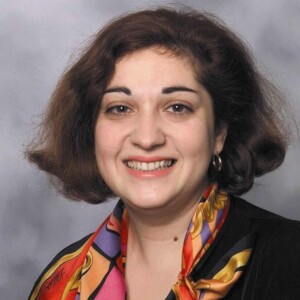
Wednesday Aug 23, 2023
Culture and Curiosity - Show #117
Wednesday Aug 23, 2023
Wednesday Aug 23, 2023
Jasmine Martirossian is Chief Marketing Officer (CMO) and Chief People Officer (CPO) of Mercury, a company simplifying time- and temperature-sensitive shipping for healthcare and life sciences companies. She speaks seven languages and has lived in as many countries, helping a host of well-known companies expand globally along the way. Jasmine shares her wisdom with us on this episode of The Global Marketing Show.
“Bottom line: stay curious.” Jasmine credits her natural ability to stay curious as the reason that she’s had so much success in global marketing. She describes two situations defused by “not staying beholden to the tyranny of war” and instead by looking for alternative solutions to help teams work together.
In China, she felt pushback by one team on developing a new website, so she could not move the project forward. Instead of forcing the issue and demanding compliance, Jasmine stayed curious and learned that the team thought it was just another “flavor of the month” project and didn’t want to engage. Plus, they had connectivity issues.
She understood the culture enough to build consensus, using her connections to find the team a place to work with reliable Wi-Fi. Even though she had been there only two days, Jasmine knew how important “connections” are in China. By taking the time to stay curious and communicate in an appropriate way, she crossed the cultural chasm and got the project done.
In another position, Jasmine was headed to France to meet with a team on a marketing project. She felt resistance from the French team about including a US colleague in the meeting, someone they considered “obstructive.” Again, instead of forcing the issue and demanding compliance, she suggested the co-worker come to France and join them for dinner. She understood the importance of meals to the French who said of course, they couldn’t refuse to “break bread” with another. Problem solved by using cultural empathy and understanding to meet the needs of all participants.
Links:
Website: https://www.shipmercury.com/
LinkedIn: https://www.linkedin.com/in/jasmine-martirossian/
Connect with Wendy - https://www.linkedin.com/in/wendypease/
Music: Fiddle-De-Dee by Shane Ivers - https://www.silvermansound.com
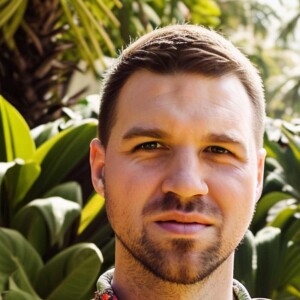
Wednesday Jul 26, 2023
AI and Translation: An Insider’s Perspective - Show #116
Wednesday Jul 26, 2023
Wednesday Jul 26, 2023
Adam Bittlingmayer is CEO and co-founder of ModelFront, a language services technology company striving to “make high-quality human translation radically more efficient” for large enterprises. The ModelFront API helps translators and language services agencies quickly determine the quality of machine-translated content, analyzing content segments for accuracy; with AI and human guidance, the technology’s ability to “predict” quality continues to improve over time.
Adam is an industry expert on automated translation - before co-founding the leading provider of machine translation quality prediction, he worked at Google Translate as an engineer, and founded Machine Translate, the foundation for open information and community for machine translation. Google Translate “makes bad translation free,” he says, adding that because most people can’t access translation the service is great for humanity, but not dependable for high-quality translation.
None of this is new to the language services industry, which has embraced machine translation from the outset. In this episode, Adam and I discuss AI, generative AI technologies like ChatGPT, and the technology’s general unreadiness for quality translation right now. AI-powered technologies are clearly and quickly redefining our concept of the future – what has changed is how we in the industry think about quality and client expectations in relation to potential (or perceived) time- and cost savings.
Adam also lays out a framework to help you decide what type of translation method works best, based on the value and uniqueness of content. Content with the highest “value” impacts a company’s revenue, brand reputation, and legal obligations and still requires human translation.
That need for quality will always be there, he says, even as the quality of AI translation improves. To keep up and stay relevant, the menu of services LSPs offer (and the methods they employ) will have to change, as the demand for services will likewise increase as the capacity to scale becomes greater.
Adam and I agree that there exist extremist viewpoints on whether technology will take over jobs from humans. To maintain a balanced discussion on the topic – he comes from the technological side and I come from the human side – we also agreed that ensuring the quality of any translation project currently requires both technology and humans.
Listen to the full episode to hear more from both perspectives and find out where they coalesce and collide. In addition, we discuss:
- LangOps strategies for larger enterprises.
- How language services agencies manage LangOps for SMEs.
- The impact of technology on translation automation.
- The role of ChatGPT in translations and confidentiality issues.
- Best practices around hybrid approaches to translation.
- New and changing translator skillsets.
Links:
Website: www.modelfront.com
LinkedIn: https://www.linkedin.com/in/bittlingmayer/
Email: adam@modelfront.com
Connect with Wendy - https://www.linkedin.com/in/wendypease/
Music: Fiddle-De-Dee by Shane Ivers - https://www.silvermansound.com
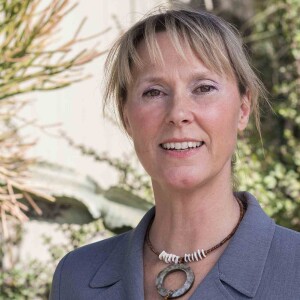
Wednesday Jun 28, 2023
Translation Unifies Multilingual Branding and Marketing - Show #115
Wednesday Jun 28, 2023
Wednesday Jun 28, 2023
Inge Carr is the owner of Altair Strategic Marketing, through which she provides Fractional and Chief Marketing Officer (CMO) services. Her vast experience consulting throughout the US, Canada, and Europe and fluency in five languages, gives Inge tremendous insight into how companies can successfully align corporate strategy with branding and marketing, especially internationally, to drive revenue.
Inge was a member of the team who created an award-winning campaign focused on marketing Canada to Olympic visitors. She reminds us that people coming from other countries to Canada may connect with different messages. And it’s not dependent so much on a person’s country of origin, but why the person is traveling.
By hiring a market research company, the team was able to determine what experiences people wanted and how they wanted to hear about it. For example:
1. Northern Lights
UK and Germany: “See the grandiose lights with standing room only.”
US: “It’s standing room only for the greatest light show.”
France: “Incredible light show and training of the dogs.” (This was the direct translation but I’m not sure what it’s supposed to mean!)
2. Glamping
The US is the only country interested in “glamping,” or luxurious camping. It’s not talked about in other countries.
3. Sailing Nova Scotia
UK, Germany, and France: “Have a wonderful lunch of lobster and scallops and enjoy the view for dessert.”
US: “Lounge around all day and have a 5-star meal for dinner.”
Inge also mentioned that a great translator simultaneously provides multilingual marketing insight to companies without a hefty Olympics-sized budget. (I certainly agree, at Rapport International our translators do it all the time.)
Among the team’s challenges were initial social media posts that did not perform as well as expected. Yet they knew to keep tweaking them until they increased their response rates.
In another role, Inge worked with an insurance company struggling with 20 different brands and a fractured brand experience. Representatives from each of the brands worked together to build a unified brand that worked across multiple languages. And although there were no language specialists in the meeting, each team member had deep experience with translation, so they resolutely kept translation issues in mind.
If you are interested in seeing how Rotary International unified their brand in multiple countries and how they handled language translation and cultural adaptation, tune in to The Global Marketing Show, episode #17.
Inge’s final words of advice: make sure to hire a professional translation organization to get the support you need. If you can’t clearly communicate your value proposition and messaging, you won’t emotionally connect with your audience. And since 90% of decision making is driven by emotion, you will also miss out on sales and lose opportunities.
Inge’s favorite word is Dutch slang for “ATM”: “Flappentapper" (flappen - tapper)! Just say it to laugh, she says. It literally means:
Flopa: currency or bills
Topper: the server who dispenses the beer at a bar
I’m adding that word to my lexicon!
Links:
Website: https://www.altairmktg.com/
LinkedIn: https://www.linkedin.com/in/icarr
Email: icarr@altairmktg.com
Phone: 760-655-6451
Connect with Wendy - https://www.linkedin.com/in/wendypease/
Music: Fiddle-De-Dee by Shane Ivers - https://www.silvermansound.com
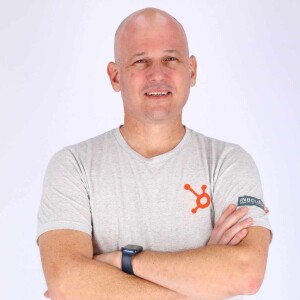
Wednesday Jun 21, 2023
Software for the Global Automotive Industry - Show #114
Wednesday Jun 21, 2023
Wednesday Jun 21, 2023
Perry Nalevka, CEO of Penguin Strategies, specializes in launching technology companies internationally. In this episode of The Global Marketing Show podcast, he talks about the global launch of GuardKnox, a technology and engineering company specializing in electric/electronics (E/E) products and solutions for the automotive industry.
GuardKnox offers next-generation software to carmakers, enabling the development of secure, high-performance driving computers. The company has won multiple awards and gets high marks from major car manufacturers like Ford, Mercedes, and Audi.
From the outset, the company knew it had a total addressable market of only 1,000 to 2,000 people and about 10 companies, so their messaging had to be impactful and authentic. Through a few iterations and carefully selected forums of engineers, they tested their messaging to make sure it resonated with their target audience in specific countries, namely the US, UK, Germany, and France.
Throughout, Perry insisted that messaging and content had to be insightful and accurately translated. He said they “would never use AI, that it had to be done right or not at all.”
The biggest mistakes the company made initially were expecting results too quickly and not creating enough quality content of interest to its buyers. Now, the CEO or CTO develops content technical enough to capture their market’s attention. You can find a wealth of robust content on the company’s website – www.guardknox.com.
Links:
Website: www.penguinstrategies.com
LinkedIn: https://www.linkedin.com/in/pnalevka/
Email: perry@penguinstrategies.com
Connect with Wendy - https://www.linkedin.com/in/wendypease/
Music: Fiddle-De-Dee by Shane Ivers - https://www.silvermansound.com
